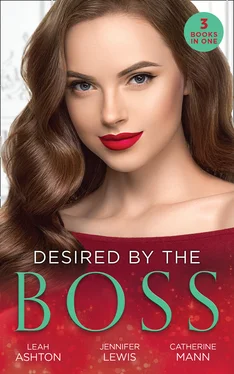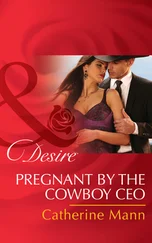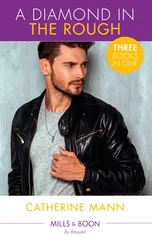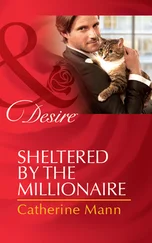April hadn’t moved from where she stood. She just watched him, letting him speak.
‘Things got worse after that. Mum was always really sociable. I remember when I was really little that she’d have these elaborate dinner parties where she’d always try something fancy out of this fat hardcover cookbook she’d get from the library. But they stopped, too. She’d still go out and see her friends—we had a nice neighbour and I’d go and stay with her and watch TV—but the house was just for us. Us and the damn boxes.’
‘That must have been hard,’ April said.
Her words were soft. Kind. That was the last thing he wanted. Kindness. Pity. He didn’t know her. Why was he telling her this?
‘I was fine,’ he said, his words hard-edged. ‘I managed.’
She stepped close to him now and reached out her hand, resting it just below his elbow.
Instinctively he shook his arm free. ‘What are you doing?’
She looked surprised—at her action or his, he couldn’t be sure.
April swallowed. ‘Sorry. I...’ There was a pause, then she straightened her shoulders. ‘I wanted to touch you,’ she said. ‘I thought it might help.’
He shook his head. ‘It was a long time ago,’ he said. ‘I’m fine.’
‘A long time ago?’ she prompted, her forehead wrinkled.
Hugh ran a hand through his hair. ‘I mean since I had to live like that. Mum—’ He hadn’t intended to explain, but he couldn’t stop himself. ‘When she met Len I was in the Lower Sixth, and she got better. She got the help she needed—did this cognitive behavioural therapy stuff, got in a professional organiser—and then, when she married Len, we moved here. She was good for a long time. It only started again when Len died, and—honestly—I did all I could. Everything I could think of to stop it happening again, to stop her filling the emptiness she felt after my father left and Len died with stuff. Objects she could cling on to for ever, that would never leave her—’
Her hand was on his arm again. His gaze shot downwards, staring at it. Immediately she removed her touch.
‘I’m sorry, I—’
‘It’s okay,’ he said. ‘I don’t mind. It felt good.’
She placed her hand on his arm again.
Her touch through the fabric of his hoodie was light against his skin. Her fingers didn’t grip...they were just there.
‘I’m a hugger,’ April explained, her gaze also trained on her hand. ‘I can’t help it. I hug everybody. Happy, sad, indifferent. Hug, hug, hug.’ She sighed. ‘It’s sucked, really, not having anyone to hug since I’ve been in London.’
‘You want a hug?’ he asked, confused.
Her head shot up and she grinned. ‘No!’ she said. ‘I was just explaining.’ She nodded at their hands. ‘The touching thing. Because I’m guessing you’re not a hugger.’
A rough laugh burst from his throat. ‘No,’ he said. ‘I’m not a hugger.’
Her lips curved upwards again. ‘I thought so.’
He rarely touched anyone except by accident. When would he? He had no family. A handful of friends. He worked remotely. He was resolutely single. And when he dated touch was about sex. Not this—not reassurance or comfort. This was touch without expectations.
It should be strange, really, to find comfort in the touch of a woman he was attracted to. The few times they’d touched before had been fleeting, but charged with electricity. And, yes, that current was still there. Of course it was.
But what she was offering was straightforward: her touch was simply to help him calm his thoughts and to acknowledge the uncomfortable memories he’d just shared.
It was working, too.
His gaze drifted from her hand to the photos he still grasped. On top was a photo taken of him in bed the morning of his tenth birthday. He’d just unwrapped his present: a large toy robot that he’d coveted for months. His mum had used the timer on her camera, propping it on his dresser, and she sat beside him, her arm around him, his superhero pillows askew behind them.
He and his mum were both smiling in the photo, and Hugh smiled now. A proper smile at a happy memory.
‘Thank you,’ he said.
For making him keep the photographs. For listening.
‘My pleasure,’ said April.
Then she squeezed his arm and her touch fell away.
‘Wait,’ he said.
HUGH’S VOICE WAS LOW. Different from before.
April went still. Her hand fell back against her thigh, already missing his warmth.
He stepped towards her, close enough that she needed to tilt her chin up, just slightly, to meet his gaze.
He studied her intently. ‘Why did you leave behind all the people you used to hug?’ he asked.
Her gaze wavered.
She put on a smile. ‘Early midlife crisis,’ she said.
Best to keep it simple.
‘No,’ he said. ‘Why are you here? Why are you working for me?’
She shrugged. ‘I told you the other day. Credit card debt.’
He looked her dead in the eye. ‘I don’t believe you.’
Ah. He was echoing her own words...the way she’d been challenging him.
She hadn’t expected the tables to turn.
She twisted her fingers in the too-long sleeves of her jumper...the fabric was all nubbly beneath her fingertips.
She wasn’t used to being secretive. She did, after all, document her life for millions of strangers. But this was different.
Hugh didn’t talk the way he just had about his past very often. Ever, maybe. April knew that—was sure of it. She understood what he’d revealed to her. How big a deal it was for him. So he deserved her honesty—she knew that.
But her reticence wasn’t just about hiding April Molyneux from a man who thought her to be April Spencer—it was more than that. There was something about Hugh—something between them that was just so different. So intense.
Until today they’d only teased the very edges of that intensity, and neither had taken it any further.
They’d both resisted temptation. The temptation to touch. To kiss.
Right now—with these questions, this conversation—it wasn’t as primal as before, although all that continued to simmer below the surface. But it was still a connection. And it still felt raw. As if sharing any part of herself, even her past, was only the start of a slippery slope.
It would lead to more. Much more.
And that was as tempting as it was frightening.
Frightening?
What was she scared of?
She didn’t answer her own question. It didn’t matter. Because she hadn’t come all the way to London to be scared of anything.
‘My husband left me,’ she said.
Silence.
She’d expected him to recoil. Because surely this wasn’t the conversation Hugh Bennell wanted to have with her?
Instead, he nodded. ‘Are you okay?’ he asked simply.
She smiled. Genuinely this time. ‘Yes,’ she said with confidence. ‘Now. Sucked for a bit, though.’
He smiled too.
‘I needed a change. So here I am. Unpacking your boxes and stacking supermarket shelves. Trust me, it’s not as glamorous a midlife crisis as I’d expected.’
‘What happened?’ he asked. Gently.
‘We fell out of love,’ she said. ‘Him first, but me too. I just hadn’t realised it. So I’m okay. Not heartbroken or anything. But it was still sad.’
‘Not heartbroken?’ he prompted.
Her gaze had travelled downwards, along his jaw and chin. Now it flew upwards, locking with his.
‘What do you think?’ she asked.
Her gaze was heated. Hot. Deliberately so.
Nope. Definitely not scared any more.
‘No,’ he said, his voice deliciously low. ‘I don’t think you are.’
And just like that weeks of tension, of attraction, of connection were just—there. No glancing away, no changing the subject, no pretending it didn’t exist.
Читать дальше












